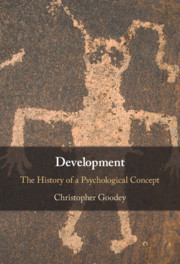'This erudite and lucid book covers the 2000-year prehistory of developmental psychology. Professor Goodey’s highly original argument moves from Augustine to Pascal and from Calvin and Locke to Rousseau, proving that many hidden assumptions in the West about development were in place well before the formal founding of child development.'
Brian D. Cox - Professor of Psychology, Hofstra University, USA
'This volume is a work of patient and meticulous scholarship, fully commensurate with the scope, gravity, and historical depth of the idea of development in psychology.'
David Devonis - Professor of Psychology, Graceland University, USA
'This book explores the origins of psychology as a theory of human developments in eighteenth and nineteenth-century biological and religious movements. This is a magnificent account of the historical connection between development and growth of the embryo, and the origins of the modern notion of an interior life.'
Stephen Gaukroger - Emeritus Professor of History and Philosophy of Science, University of Sydney, Australia
'In this engaging and provocative book, Professor Goodey insightfully discusses the history of the concept of development within theology, philosophy, science, and education. The book is an invaluable resource to developmental and educational scientists, looking to better understand the constructive nature of foundational ideas and the primacy of theory in empirical inquiries about human development.'
Richard M. Lerner - Bergstrom Chair in Applied Developmental Science and Director of the Institute for Applied Research in Youth Development, Tufts University, USA
'Christopher Goodey’s brilliant book deploys rare expertise to show the notion of development’s roots within the Christian intellectual tradition. Future discussion of childhood and development, and hence also of intelligence and disability, will have to take these deeply researched arguments into account.'
Roger Smith - Emeritus Reader in the History of Science, Lancaster University, UK
'This book conducts an ambitious historical interrogation of the psychological concept of development. The analysis is compelling and offers innovative thinking in this area. It is a must-read for anyone with an interest in psychology, childhood studies, and the history of ideas.'
Steven Taylor - Lecturer in History of Medicine, University of Kent, UK
‘This book will be a profitable read for scholars working in all these areas, as well as in philosophy.’
B. T. Harding
Source: Choice



